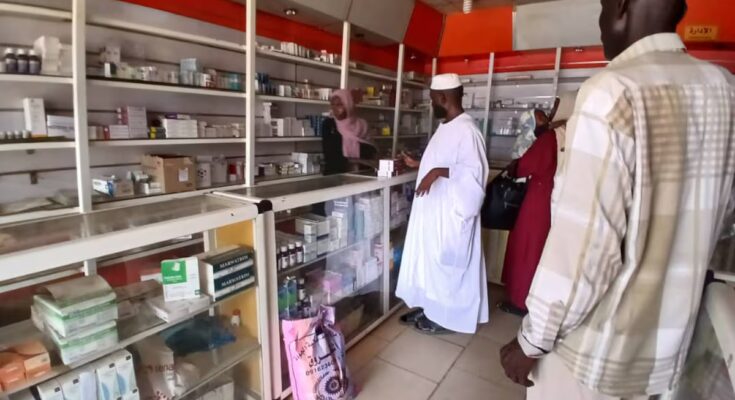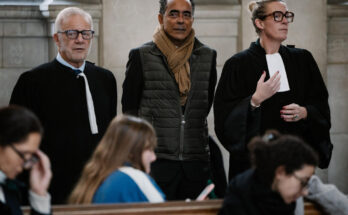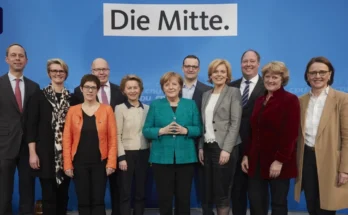When Sudan’s capital fell to civil war in April 2023, five million residents faced an impossible choice: abandon everything or find a way to survive in a besieged and bombed city.
Streets that were once busy with traffic have become cemeteries of burned vehicles. The markets that had fed generations were left empty, the sellers fled. The electricity grid collapsed under the bombing, hospitals were closed and government services disappeared completely.
The war that began on April 15, 2023 pitted the Sudanese Army (SAF) against the Rapid Support Forces (RSF), a paramilitary militia. The RSF controlled much of Khartoum from July 2023 to May 2025, when the army began retaking territory. During this gap, communities began filling the gaps with their own solutions.
In Kalaklat, a district home to 700,000 people across 20 neighborhoods in southern Khartoum, the collapse of formal healthcare has forced residents to adopt new forms of cooperation. There, the Al Wasila family, who had built a chain of pharmacies across the capital since emigrating from northern Sudan in the late 1970s, made a life-saving decision: They converted their medicine warehouse into a neighborhood pharmacy, pooling family resources to serve their community.
When the Rapid Support Forces tightened control over the area starting in July 2023, the healthcare sector completely collapsed. Most clinics have stopped operating, pharmacies have emptied their shelves and essential medicines have disappeared from the market.
At that moment the Al Wasilas, all graduates of Sudanese pharmacy schools, understood the moral obligation of their profession. “My father wasn’t so much interested in how to get the medicine, but rather in getting it and distributing it to people,” explains Basmat Al Wasila, daughter of Dr. Ahmed al Wasila, who ran the operation.
The family’s commitment goes beyond trade. They installed solar panels with their own money to power cooling units for temperature-sensitive drugs and started a water pumping station that supplied nearby neighborhoods. But their most radical act was economic: they regularly provided free medicine to those who could not afford it.
The transactions revealed one of the cruel paradoxes of war. “My father purchased medicines, sometimes at exorbitant prices, from people belonging to the Rapid Support Forces, who stole them from medicine warehouses and factories located in the heart of the capital Khartoum,” Basmat continues.
“Sometimes they also bought them from citizens who also stole them with the help of members of the Rapid Support Forces. It was the only way to obtain medicines, and we suffered a lot of violence, looting and robberies from these forces who sold us medicines in the morning and came at night to steal them at gunpoint,” he recalls.
Their warehouse-turned-pharmacy has become a lifeline for patients like Hawida Bayen, who suffers from diabetes and hypertension. “In the first months of the war, when all the pharmacies ran out of medicine and closed them, my son searched for my diabetes medicine for three days and couldn’t find it,” Bayen recalls. After a neighbor told him about the Al Wasilas, he sent his son to Dr. Ahmed.
“I had no money… They gave me the medicines immediately and, from that day until the army liberated the area from the control of the Rapid Support Forces, the pharmacy provided me with the medicines without charging me a single cent.”
The operation, however, came at an enormous personal cost. On 17 July 2024, Dr Ahmed al Wasila was kidnapped by unknown forces, released two days later and immediately fled to Egypt. “However, our family continued to provide services to citizens,” adds Basmat al Wasila.
Solidarity served daily
The harsh reality of the absence of the elements of daily life was not just a fact, but a general feeling that accompanied people: absence of security, lack of electricity, absence of services, closure of markets and disappearance of consumer goods, electric bakeries that first ran on electricity and then switched to wood, and even absence of hope.
In this void, the most visible form of community resilience was born: the Takaya (plural of Takiya) or community kitchens, born in the neighborhoods of Khartoum. These charities represented perhaps the purest expression of wartime solidarity, with volunteers cooking for neighbors, funded by those who remained or supported efforts from abroad.
Al Takiya is neither a registered association nor an official charity. Rather, it is a community initiative, usually around a mosque, Qur’anic schools, sophist groups, sports clubs or even private neighborhood youth groups that collect money from individuals and sometimes share it to buy food to cook. The money raised is used to purchase cheap but highly nutritious foods, such as legumes, lentils, beans and, in extreme cases, meat.
In collaboration with neighborhood volunteers, international organizations such as Doctors Without Borders and the International Relief Organization, and diaspora benefactors, these kitchens provided two legume-based meals a day to families across the capital.
The Takiya preserves “the dignity of the family”: no photos are taken unless desired and there are no camps: a family member goes to the site to collect food for the whole family, usually the man, and leaves without his name or that of his family being recorded or noted.
Majdi Mohammed Saleh, 38, head of local resistance committees in Jabal Awliya, founded several Takiyas as the humanitarian crisis worsened. Resistance committees were formed in the 1990s, but became very relevant during the social mobilizations of 2018 and 2019 that forced the fall of former dictator Omar Al Bashir. They are decentralized, informal groups of civilians who support each other to distribute humanitarian aid across the country. Their name evolved into ERRS (emergency response unit).
“From the first months of the war, when the humanitarian situation went from bad to worse, my priority as head of the resistance committees was to guarantee food and drinking water to the citizens under my responsibility,” explains Saleh.
Networks born out of necessity
When the Sudanese army began to retake southern Khartoum in April 2025, the area suffered “a complete electricity blackout for almost a month.” But by then the residents had already created alternative systems. What had started as emergency measures – families pooling resources to buy solar panels, neighbors sharing water pumps, communities organizing food distribution – had become mutual aid networks that operated independently of official authorities.
Today, although the army has regained control of the three cities of Khartoum, Khartoum, Bahri and Omdurman, these community-created systems persist. RSF’s systematic drone attacks on electricity infrastructure have caused the collapse of the national grid, resulting in severe and near-permanent outages in most neighborhoods of the capital.
But residents no longer expect solutions from the Government. Official initiatives are now promoting the adoption of solar energy in homes, health centers, mosques and institutions in Khartoum, building on the foundations of community cooperation laid during the darkest months.



